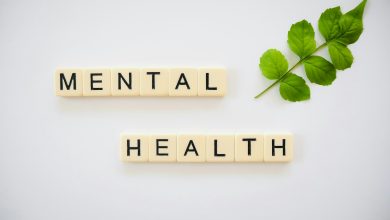What Happens When Every Anti-Depressant and Anti-Anxiety Drug Fails?

Depression and anxiety are different conditions, but they commonly occur together. They also have similar treatments. Feeling down or having the blues now and then is normal. And everyone feels anxious from time to time — it’s a normal response to stressful situations. But severe or ongoing feelings of depression and anxiety can be a sign of an underlying mental health disorder.
Anxiety may occur as a symptom of clinical (major) depression. It’s also common to have depression that’s triggered by an anxiety disorder, such as generalized anxiety disorder, panic disorder, or separation anxiety disorder. Many people have a diagnosis of both anxiety disorder and clinical depression.
Symptoms of both conditions usually improve with psychological counseling (psychotherapy), medications, such as antidepressants, or both. Lifestyle changes, such as improving sleep habits, increasing social support, using stress-reduction techniques, or getting regular exercise, also may help. If you have either condition, avoid alcohol, smoking, and recreational drugs. They can make both conditions worse and interfere with treatment.
What are antidepressants?
Antidepressants are prescription medicines to treat depression. Antidepressants can help many people who have depression. Researchers think antidepressants may help improve the way your brain uses certain chemicals that control mood or stress. A health care provider may prescribe antidepressants for anxiety, chronic pain, or insomnia. Sometimes, providers also prescribe antidepressants for other conditions.
Antidepressants are among the most commonly prescribed medications in the United States. There are four categories of antidepressants plus a few “atypicals” that have unique properties: selective serotonin reuptake inhibitors (SSRIs) such as fluoxetine (Prozac) and citalopram (Celexa); serotonin and norepinephrine reuptake inhibitors (SNRIs) such as venlafaxine (Effexor) and duloxetine (Cymbalta); tricyclic and tetracyclic antidepressants such as nortriptyline (Pamelor) and imipramine (Tofranil); and monoamine oxidase inhibitors (MAOIs) such as isocarboxazid (Marplan) and phenelzine (Nardil). Bupropion (Wellbutrin) and mirtazapine (Remeron) are examples of antidepressants that are in classes by themselves.
Each antidepressant works a little differently, but they all target chemical messaging systems in the brain that help regulate mood.
However, approximately 30–40% of people with depression do not respond to traditional antidepressants. Of those that do, many only have a partial improvement. Also, even the people who initially have a good response can develop a sort of tolerance over time, where the drug loses effectiveness. This is why drugs like Ketamine have been approved for those with severe treatment-resistant depression.
What Happens When every Anti-Depressant and Anti-Anxiety Medication Fails?
When a patient has tried several antidepressants without any improvements in their condition, psychiatrists or healthcare providers will reevaluate to check to see if the original diagnosis is correct. This often helps to check if the patient is suffering from a condition that requires different treatment, determine if psychotherapy or adjunct medications such as lithium, thyroid, L-methylfolate. antipsychotics may help.
Beyond these medications, there are several other alternatives to antidepressants that can be used for treating depression and other mental health conditions, they include:
Cognitive-behavioral therapy: Cognitive behavioral therapy (CBT) is a type of talking therapy that’s increasingly being used in the treatment of depression. Most experts recommend that people with moderate to severe depression are treated with a combination of CBT and antidepressants.
However, if you’re unable or unwilling to take antidepressants, you have the option of receiving CBT on its own. CBT helps you understand your thoughts and behavior and how they affect you. It helps you recognize that events in your past may have affected you, but it concentrates mostly on how you can change the way you think, feel and behave in the present. It also teaches you how to overcome negative thoughts.
Online CBT: Computerized or online CBT is a form of CBT that works through a computer screen, rather than face-to-face with a therapist. These therapies can be prescribed by your GP or a mental health specialist and are carried out with their advice and support.
Interpersonal therapy (IPT): Interpersonal therapy (IPT) focuses on your relationships with other people and on problems you may be having in your relationships, such as difficulties with communication or coping with bereavement. A course of IPT is usually structured in the same way as a course of CBT. There’s some evidence that IPT can be as effective as antidepressants or CBT, but more research is needed.
Counseling: Counselling is a form of therapy that helps you think about the problems you’re experiencing in your life to find new ways of dealing with them. Counselors support you in finding solutions to problems but do not tell you what to do. Counselling usually consists of 6 to 12 sessions lasting an hour each. You talk in confidence to a counselor, who supports you and offers practical advice. Counseling is ideal for people who are generally healthy but need help coping with a current crisis, such as anger, relationship issues, bereavement, redundancy, infertility, or the onset of a serious illness.
Exercise: Research suggests that regular exercise may be a more effective treatment for mild depression than antidepressants. Exercise helps boost levels of chemicals called serotonin and dopamine in the brain, which can lift your mood. Exercising on a regular basis can boost self-esteem and confidence, which can help to relieve symptoms of depression.
Self-help groups: Talking through your feelings can be helpful. You can either talk to a friend or relative, or you can ask your doctor to suggest a local self-help group. There are also chat rooms on the internet that offer support.
Electric shock treatment: Sometimes a treatment called electroconvulsive therapy (ECT) may be recommended if you have severe depression and other treatments have not worked, as it can be highly effective. During ECT, you’ll first be given an anesthetic and medicine to relax your muscles. Then you’ll receive an electric current to your brain through electrodes placed on your head. You may be given a series of ECT sessions. It’s usually given twice a week for 3 to 6 weeks. It’s not exactly clear how ECT works, but recent studies suggest it may help reduce connections in an area of the brain linked to depression.





